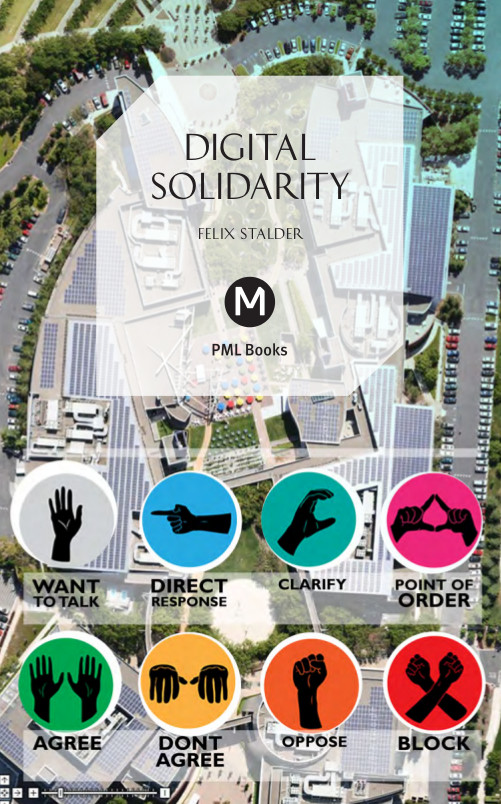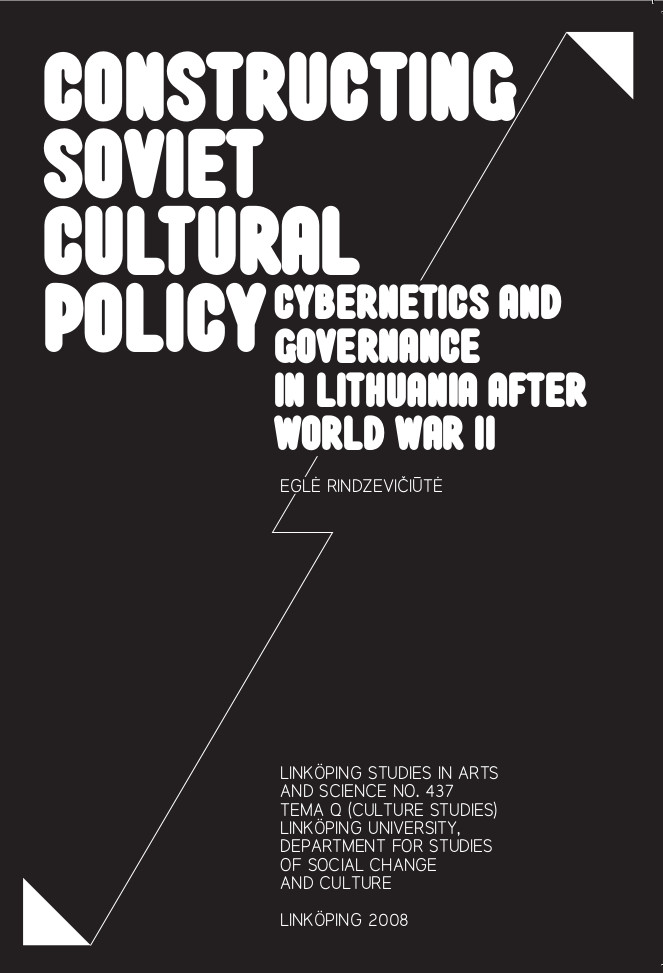Felix Stalder: Digital Solidarity (2013) [English, German]
Filed under book | Tags: · commons, networks, p2p, politics, social movements, swarm, technology, theory

“Felix Stalder’s extended essay, Digital Solidarity, responds to the wave of new forms of networked organisation emerging from and colliding with the global economic crisis of 2008. Across the globe, voluntary association, participatory decision-making and the sharing of resources, all widely adopted online, are being translated into new forms of social space. This movement operates in the breach between accelerating technical innovation, on the one hand, and the crises of institutions which organise, or increasingly restrain society on the other. Through an inventory of social forms – commons, assemblies, swarms and weak networks – the essay outlines how far we have already left McLuhan’s ‘Gutenberg Galaxy’ behind. In his cautiously optimistic account, Stalder reminds us that the struggles over where we will arrive are only just beginning.”
Publisher Mute and Post-Media Lab, Leuphana University, December 2013
Anti Copyright
ISBN 1906496927, 9781906496920
68 pages
Author
Publisher (EN, Mute)
Publisher (EN, PML)
Publisher (DE, Rosa Luxemburg Stiftung)
Digital Solidarity (English, 2013)
Digitale Solidarität (German, 2014, added on 2017-6-4)
Jeffrey Herf: Reactionary Modernism: Technology, Culture, and Politics in Weimar and the Third Reich (1985)
Filed under book | Tags: · engineering, enlightenment, fascism, germany, marxism, modernism, national socialism, nationalism, nazism, politics, romanticism, technology, weimar republic

“In a unique application of critical theory to the study of the role of ideology in politics, Jeffrey Herf explores the paradox inherent in the German fascists’ rejection of the rationalism of the Enlightenment while fully embracing modern technology. He documents evidence of a cultural tradition he calls ‘reactionary modernism’ found in the writings of German engineers and of the major intellectuals of the Weimar right: Ernst Juenger, Oswald Spengler, Werner Sombart, Hans Freyer, Carl Schmitt, and Martin Heidegger. The book shows how German nationalism and later National Socialism created what Joseph Goebbels, Hitler’s propaganda minister, called the ‘steel-like romanticism of the twentieth century’. By associating technology with the Germans, rather than the Jews, with beautiful form rather than the formlessness of the market, and with a strong state rather than a predominance of economic values and institutions, these right-wing intellectuals reconciled Germany’s strength with its romantic soul and national identity.”
Publisher Cambridge University Press, 1985
ISBN 0521338336, 9780521338332
251 pages
Reviews: R.J. Overy (English Historical Review), Geoff Eley (Telos).
Commentary: Thomas Rohkraemer (Contemporary European History).
Egle Rindzevičiūtė: Constructing Soviet Cultural Policy: Cybernetics and Governance in Lithuania after World War II (2008)
Filed under thesis | Tags: · cybernetics, governance, lithuania, politics, soviet union, technology

After World War I, the Soviet Union was one of the first modern states to engage explicitly in the governance of culture, which was formalised and institutionalised as state cultural policy. In this process of governance, sciences and technologies provided the state with conceptual and material resources, which were used to define both the process and the object of governance. After World War II, scientific and technological progress gave birth to a new science of control and communication, Norbert Wiener’s cybernetics, which was widely used not only in engineering, but also in the conceptualisation of humans, machines and societies. This thesis explores how cybernetics influenced the construction of cultural policy in the Soviet Union. It focuses particularly on the Soviet republic of Lithuania. The main argument is that since the 1950s a particularly powerful discourse of cybernetic governance was formed in the Soviet Union. A result of translation from techno-science, this discourse not only served the purposes of authoritarian rule, but was also used as a resource by cultural operators to criticise the Soviet government itself. By analysing organisational practices and official and public discourses, the study reveals the complexity of the relationship between governance, culture and sciences and technologies.
Doctoral thesis
Faculty of Arts and Sciences, Linköping University, 2008
274 pages

